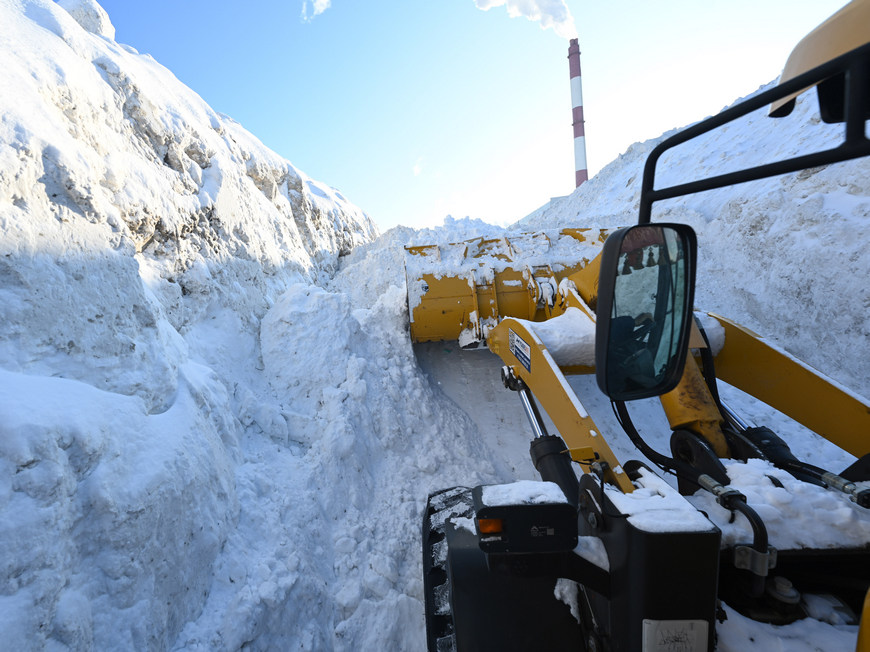(KZN.RU, March 1, Alsu Safina). The city station for the implementation of the separate collection of solid municipal waste began its work in Kazan. The first inaugural meeting was held by Ilsur Meshin, the Mayor of Kazan, at the Executive Committee today. The head of the city marked that the working meetings will become regular and will be held weekly, including on-site visits to the city facilities.
The meeting was attended by the heads of the executive units of the Executive Committee, the heads of district administrations, Sergey Bogatov, the CEO of the OOO “UK PZhKKh”, the regional operator for MSW treatment, the directors of management companies. They discussed the current state of the waste management infrastructure, as well as a separate waste collection in educational institutions of Kazan.
Denis Kalinkin, the head of the Kazan Executive Committee, who headed the city station for the separate collection of MSW, reminded that from January 1, the capital of Tatarstan switched to a new procedure for handling wastes. “The goal of the reform is to establish order in dealing with MSW, attracting investments in the infrastructure of the industry, organizing accounting and control of MSW from the moment of their formation until their final disposal”, said the head of the city Executive Committee. He added that it is necessary to strive for zero burying of MSW at landfills. An important role in this matter is played by recycling, and this requires high-quality waste sorting.
In August of last year, a pilot project on separate waste collection was launched in the Aviastroitelny district of Kazan. Containers with gray and yellow stickers were installed on the territory of apartment buildings in the districts for separate collection of sorted dry clean waste and other wet waste. According to D. Kalinkin, the project showed the interest of Kazan citizens in the separate collection of waste. “At the start of the project, from 7 to 10% of secondary resources suitable for recycling were recovered. Today at least 20-25% of recyclable waste is extracted from containers”, he noted.
Denis Kalinkin drew attention to the fact that at the level of the Government of Russia, a proposal is being considered to introduce a zero rate for the export of sorted waste. “Even now, the possibility of payment not according to the norms of accumulation, but on the fact of export when introducing a separate collection of waste is provided”, said the head of the Kazan Executive Committee.
“We must have a clear idea of the need for building new container sites and improving the existing ones”, said the head of the station. He added that container sites must comply with sanitary standards and rules. They should be equipped so that they can be conveniently serviced, fit into the surrounding urban environment.
Speaking about the existing infrastructure in the field of waste management, Dmitry Anisimov, the chairman of the Housing and Communal Service Committee, said that at the moment, an inventory of container sites in the territory of apartment buildings and the private sector was carried out. Such works will be done in the territory of social facilities, enterprises, and organizations. It is planned to label the containers with yellow and gray labels following the example of the pilot project of the Aviastroitelny district. Dmitry Anisimov said that now 80% of containers are ready for marking, the remaining non-format containers must be replaced. According to him, the process of concluding contracts between management organizations and the regional operator is at the final stage.
Another subject of the meeting was the introduction of a separate collection of waste in educational institutions. Ilnar Khidiyatov, the head of the Department of Education, said that since January 1, all the schools and institutions of supplementary education in the city have urns for the dual collection and street euro-containers. The waste paper collection is organized in schools and kindergartens of the city. “Since the beginning of this school year, more than 900 tons of waste paper has been collected in schools. The proceeds are implemented within the framework of the project “Good Kazan” and are sent to charity”, noted I. Khidiyatov.
In addition, the collection of batteries was organized in 76 schools and 61 kindergartens. From March 15, special containers for collecting batteries will be installed in all schools, and from September 1 – in all kindergartens. This was possible thanks to an agreement signed in mid-February at the Russian Investment Forum in Sochi by Rustam Minnikhanov, the President of the RT, and Yuri Korotaev, the director of the OOO “Duracell Russia”. According to Iskander Giniyatullin, the deputy head of the Executive Committee, the company will install containers for collecting batteries at all educational institutions by the end of the year. In the future, such points, as well as pavilions for collecting electronic equipment and hazardous waste, will appear throughout the city. In total, 2300 points are expected to be organized in Tatarstan and its capital.
“It’s good that, apart from our desire, there are resources of such a large company and the interest of the President of the RT,” noted the Mayor of Kazan.
Within the framework of the project on eco-education of young Kazan citizens, schoolchildren took part in the actions “Kryshechki Dobra” (Rus. “Good Caps”), “Sdai batareiki – spasi prirodu” (Rus. “Pass the batteries, save nature”). In addition, there were thematic lectures, a film on environmental protection for schoolchildren of Aviastroitelny and Novo-Savinovsky districts, a scientific and practical conference. 12 schools of Kazan were made the centers of environmental education from the new school year.
Summing up the meeting, the Mayor of Kazan noted that the issues of separate collection of MSW in the city will be dealt with systematically and substantively in order to go the way step by step. “No one before us in Russia went so far along this road. Kazan should become a pilot city for civilized separate garbage collection”, said the Mayor concluded.
